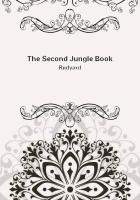I find not that he was any way ensnared in the factions of the court, which were all his times strong, and in every man's note, the Howards and the Cecils of the one part, and my Lord of Essex, &c., on the other, for he held the staff of the treasury fast in his hand, which made them, once in a year, to be beholden to him; and the truth is, as he was a wise man and a stout, he had no reason to be a partaker, for he stood sure in blood and in grace, and was wholly intentive to the Queen's service; and such were his abilities, that she might have more cunning instruments, but none of a more strong judgment and confidence in his ways, which are symptoms of magnanimity, whereunto methinks this motto hath some kind of reference, AUT NUNQUAM TENTES, AUT PERFICE. As though he would have charactered, in a word, the genius of his house, or express somewhat of a higher inclination, than lay within his compass; that he was a courtier is apparent, for he stood always in her eye and in her favour.
MOUNTJOY.
My Lord Mountjoy was of the ancient nobility, but utterly decayed in the support thereof, patrimony, through his grandfather's excess, his father's vanity in search of the philosopher's stone, and his brother's untimely prodigality; all of which seemed, by a joint conspiracy, to ruinate the house, and altogether to annihilate it;as he came from Oxford, he took the Inner Temple in the way to court, whither he no sooner came, but he had a pretty kind of admission, which I have heard from a discreet man of his own, and much more of the secrets of those times; he was then much about twenty years of age, brown-haired, of a sweet face, and of a most neat composure, tall in his person. The Queen was then at Whitehall, and at dinner, whither he came to see the fashion of the court, and the Queen had soon found him out, and, with a kind of an affected favour, asked her carver who he was; he answered he knew him not, insomuch that an inquiry was made, one from another, who he might be, till at length it was told the Queen, he was brother to the Lord William Mountjoy. Thus inquiry, with the eye of her majesty fixed upon him, as she was wont to do, and to daunt men she knew not, stirred the blood of the young gentleman, insomuch as his colour went and came; which the Queen observing, called unto him, and gave him her hand to kiss, encouraging him with gracious words, and new looks, and so diverting her speech to the lords and ladies, she said that she no sooner observed him but she knew there was in him some noble blood, with some other expressions of pity towards his house; and then, again demanding his name, she said, "Fail you not to come to the court, and I will bethink myself, how to do you good;" and this was his inlet, and the beginning of his grace; where it falls into consideration that, though he wanted not wit nor courage, for he had very fine attractives, as being a good piece of a scholar, yet were those accompanied with the retractives of bashfulness, and natural modesty, which, as the wave of the house of his fortune then stood, might have hindered his progression, had they not been reinforced by the infusion of sovereign favour, and the Queen's gracious invitation; and that it may appear how he was, and how much that heretic, necessity, will work in the directions of good spirits, I can deliver it with assurance, that his exhibition was very scanty, until his brother died, which was shortly after his admission to the court; and then was it no more but a thousand marks PER ANNUM, wherewith he lived plentifully, and in a fine garb, and without any great sustentation of the Queen, during all her times.
And, as there was in nature a kind of backwardness, which did not befriend him, nor suit with the motion of the court, so there was in him an inclination to arms, with a humour of travelling and gadding abroad, which had not some wise men about him laboured to remove, and the Queen laid in her command, he would, out of his own native propension, marred his own market; for as he was grown by reading, whereunto he was much addicted, to the theory of a soldier, so was he strongly invited by his genius, to the acquaintance of the practice of the war, which were the causes of his excursions, for he had a company in the Low Countries, from whom he came over with a noble acceptance of the Queen; but, somewhat restless in honourable thoughts, he exposed himself again and again, and would press the Queen with pretences of visiting his company so often, till at length he had a flat denial; yet he struck over with Sir John Norris into the action of Britanny, which was then a hot and active war, whom he would always call his father, honouring him above all men, and ever bewailing his end; so contrary he was in his esteem and valuation of this great commander to that of his friend, my Lord of Essex; till at last the Queen began to take his digressions for contempt, and confined his residence to the court, {66} and her own presence; and, upon my Lord of Essex's fall, so confident she was of her own princely judgment, and the opinion she had conceived of his worth and conduct, that she would have this noble gentleman and none other to bring in the Irish wars to a propitious end; for it was a prophetical speech of her own, that it would be his fortune and his honour to cut the thread of that fatal rebellion, and to bring her in peace to the grave; wherein she was not deceived: for he achieved it, but with much pains and carefulness, and not without the forces and many jealousies of the court and times, wherewith the Queen's age and the malignity of her settling times were replete.
And so I come to his dear friend in court, Secretary Cecil, whom, in his long absence, he adored as his saint, and counted him his only MECENAS, both before and after his departure from court, and during all the time of his command in Ireland; well knowing that it lay in his power, and by a word of his mouth, to make or mar him.
ROBERT CECIL.















